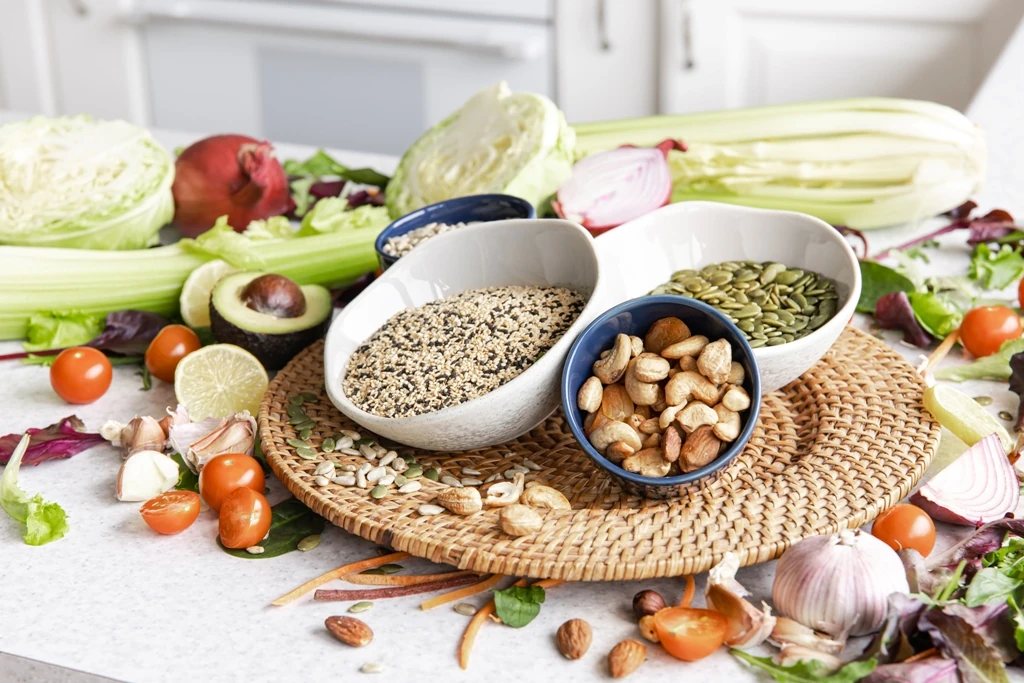“Unlocking the Health Benefits of Superfoods: Your Guide to Nutrient-Packed Dietary Heroes”
Superfoods are nutrient-dense foods that are rich in essential vitamins, minerals, antioxidants, and other health-promoting compounds. Potential health benefits and are considered important components of a balanced diet. While there is no official definition of what constitutes a superfood, many of these foods are known for their exceptional nutritional profiles and potential to contribute to overall well-being.
Here are some superfoods that have gained popularity for their health benefits:
- Berries: Berries such as blueberries, strawberries, raspberries, and blackberries are packed with antioxidants, particularly anthocyanins, which have been linked to improved cognitive function and reduced oxidative stress.
- Leafy Greens: Vegetables like spinach, kale, Swiss chard, and collard greens are rich in vitamins (especially vitamin K), minerals (such as calcium and magnesium), and fiber. They’re also low in calories, making them ideal for weight management.
- Salmon: Fatty fish like salmon are abundant in omega-3 fatty acids, which are known for their heart-protective properties. Omega-3s are also essential for brain health and reducing inflammation.
- Nuts and Seeds: Almonds, walnuts, flaxseeds, chia seeds, and hemp seeds are nutrient-dense and provide healthy fats, protein, fiber, and various vitamins and minerals. They are associated with heart health and reduced risk of chronic diseases.
- Turmeric: This spice contains curcumin, a powerful anti-inflammatory compound. Turmeric is used in traditional medicine and is believed to have numerous health benefits, including potential anti-cancer properties.
- Quinoa: As a high-protein grain, quinoa is a great source of essential amino acids, fiber, and various vitamins and minerals. It’s particularly suitable for vegetarians and vegans.
- Yogurt and Fermented Foods: Probiotic-rich foods like yogurt, kefir, sauerkraut, and kimchi promote gut health and may boost the immune system.
- Avocado: Avocados are packed with healthy monounsaturated fats, fiber, potassium, and vitamins. They’re excellent for heart health and may help reduce cholesterol levels.
- Green Tea: Green tea contains antioxidants called catechins, which have been linked to various health benefits, including improved metabolism and reduced risk of certain diseases.
- Garlic: Garlic has been used for its medicinal properties for centuries. It contains allicin, a compound with potential antimicrobial and cardiovascular benefits.
- Sweet Potatoes: Rich in vitamins A and C, fiber, and antioxidants, sweet potatoes are a nutritious carbohydrate source that supports immune health and may help regulate blood sugar.
- Mushrooms: Certain varieties of mushrooms, like shiitake and maitake, are known for their immune-boosting properties. They also provide essential nutrients like vitamin D.

While these foods are nutrient powerhouses, no single food can provide all the nutrients your body needs. A balanced diet that includes a variety of foods from all food groups is essential for optimal health. Additionally, individual dietary needs can vary, so it’s a good idea to consult with a healthcare professional or registered dietitian to create a personalized nutrition plan based on your specific goals and health requirements.
Aging Gracefully: Tips for Healthy Living at Every Life Stage









